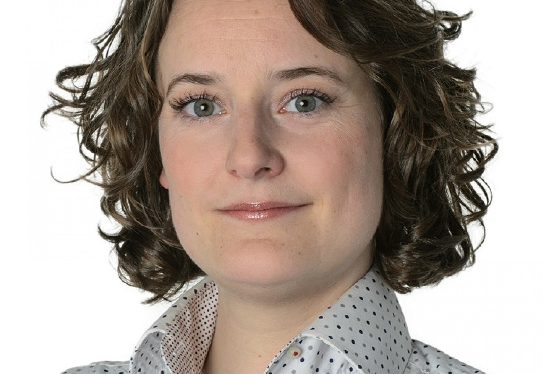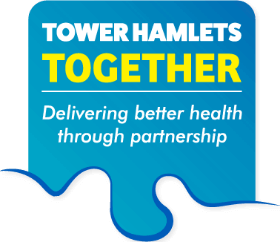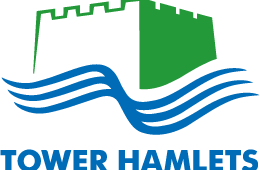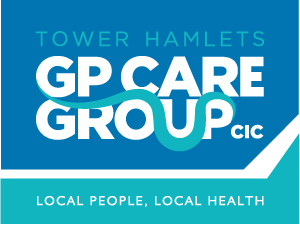Amy's Monthly Briefing - September 2019
The borough’s vision of a seamless health and care experience for its citizens.

Our spotlight was on the Promoting Independence workstream this month, with good progress reported on personalisation and personal budgets, lots of energy and some stretching targets in place to drive change.
This month, at the monthly Chair’s Planning Group meeting we heard from Simon Hall (North East London CCGs) about the NHS Long Term Plan and agreed how we would feed our strong experience and examples from Tower Hamlets into the North East London response. Along with other Board members, I also contributed to workshops on the forthcoming Mental Health Strategy and Substance Misuse Strategy.
The September THT Board meeting had a packed agenda as usual. We were hosted at the brilliant Create day centre, which provides support, activities, training and employment opportunities to adults with learning disabilities. I was really pleased that the Board heard directly from Create service users about some of their experiences of using health and care support in Tower Hamlets. People generally really valued their social workers and key workers, although there was often quite a lot of changes in staff, which could be difficult. Most people had recently had a health check and found this positive. Issues included waiting times and short appointments with GPs, feeling that sometimes professionals talk to their social worker or even the computer, rather than the person themselves, and long waits at pharmacies. There were some good ideas too, like having maps and pictures at the Royal London to help people get around – planned soon!
We had a discussion about Quality Improvement (QI) and the appetite amongst the Board to fully commit to using QI methodology across the whole system. There was lots of support given and some partners have already embraced this, or are on their journey to adopting QI, and WEL (Newham, Tower Hamlets and Waltham Forest CCG) plan to adopt the same methodology. The Board agreed to have further discussions with partners currently using alternative methodologies for improvement, such as outcomes-based accountability, to bottom out the implications of aligning approaches, while making sure the voluntary sector do not face multiple methodologies across the system.
Our spotlight was on the Promoting Independence workstream this month, with good progress reported on personalisation and personal budgets, with lots of energy and some stretching targets in place to drive change. A joint strategy on personalisation is also being developed. The other two priorities - care-coordination and frailty require some further interrogation of the data underpinning the cohorts, to ensure we adopt a social model and can effectively measure the benefits of this work for people. A pilot around care co-ordination has been undertaken in the South East locality; findings from this will inform the next stage of the project. We also heard how the workstream really benefits from the active engagement of Real, Healthwatch and a service user representative. The Board agreed that now the Locality Health and Wellbeing Committees are established and motoring, we need to ensure formal links are in place so there is a two-way flow of communication with the life-course workstreams.
We also had a focus on mental health this month, hearing an update from the Mental Health Partnership. The Board were pleased to hear about the new strategy’s focus on: expanding crisis support, including a café, 24/7 crisis resolution and home treatment teams and building on the success of the crisis phone line; adult autism diagnoses; community mental health support; transition between children’s and adults, and accommodation. The issue of more people in crisis presenting in A&E was flagged, with concerns people are not in the best place for them and waiting far too long to be transferred to the right kind of support. This is being interrogated in other forums but will be reported back to the Board.
Our final item was a workshop on the THT Outcomes Framework. This has been developed and co-designed with stakeholders across the partnership, based on the I Statements that were previously co-produced with local people. To create a usable Outcomes Framework, the I Statements have been grouped into five domains:
• Integrated health and care system
• Wider determinants of health
• Healthy lives
• Quality of care and support
• Quality of life
Each domain and I Statement now has a narrative, a set of indicators to measure progress towards the outcome and proposed aspirational indicators that we could adopt across the system. Board members shared some inspiring examples of how the I Statements and draft Outcomes Framework have already been used in commissioning, programme improvement and team planning – with the people-focussed I Statements helping to shift mindsets and consider wider implications and impacts of how we design services. We enthusiastically signed it off! Next steps are to produce a practical online resource so everyone across THT can embrace and use it. Watch this space!








